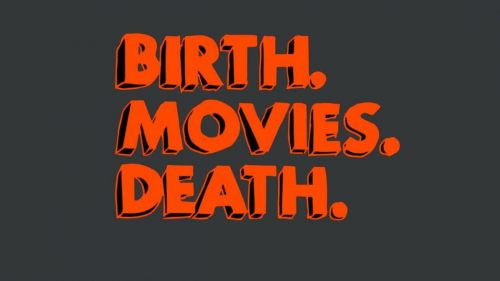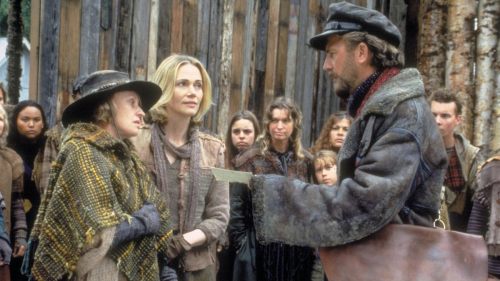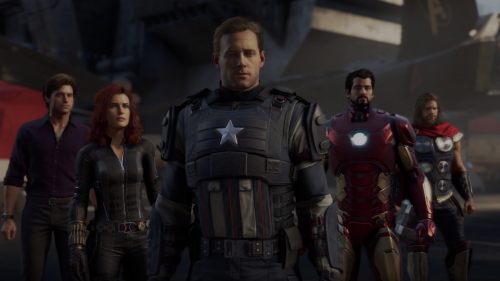SERENITY: Joss Whedon’s Dry Run at THE AVENGERS
It's sort of bizarre that Serenity and The Avengers are the only big Joss Whedon genre films we have. Both came out of atypical origins that in many ways dictated their fate: one a last hurrah for a doomed cult television show and the other a culmination of several separate but largely successful mainstream comic book films. It's just a guess, but the very best Serenity movie possible probably still would have failed financially, while the very worst version of The Avengers you can imagine probably still would have made a little money. It just wouldn't have made all the money.
Obviously, both films charge Whedon with the unenviable task of wrangling and introducing a large number of highly individualistic characters. The original Firefly crew has nine members. There are six Avengers, but you must also add Loki, Agent Coulson and Nick Fury, making them more or less even. In The Avengers, he pulls this off by staggering introductions. Thor, for instance, doesn't appear until about forty five minutes in. With Serenity, however, Whedon throws us into the mix with an awkward, exposition heavy walk and talk through the entire ship. The Avengers' tactic is far more successful because the property affords Whedon the luxury of pre-introduced characters. With Serenity, Whedon has only a few minutes to bring new audiences (on whom the film's financial success depended) up to speed on a whole crew of strangers.
But before any of that can happen, Whedon opens each film with similar scenes that establish a ruling organization (The Alliance and SHIELD), a villain (The Operative and Loki) and a MacGuffin (River Tam and the Tesseract), thereby defining his story parameters. Both sequences provide the films with their respective low points, almost knowingly so. Serenity in particular utilizes a strange dream within a video recording double fake-out to get the information across. The two openings feel more like narrative work than actual narrative.
Once Serenity and The Avengers get over their bumpy launches, however, they both soar, managing to create entertainment even during their brief periods of downtime thanks largely to tropes specific to Whedon. Obviously both films are especially funny, but his strengths go much deeper than that. Take, for instance, Whedon's remarkable ability to create credible villains. Through Whedon, even Loki -- a character whose menace clearly grows out of insecurity -- has the ability to suddenly obliterate The Avengers' lighter tone with a speech seething with genuine malice toward Scarlett Johansson's Black Widow.
Conversely, a still snapshot of one of Serenity's Reavers would seem more silly than threatening. But they are no laughing matter as depicted in the film. Whedon achieves this by focusing more on reactions to the Reavers than the Reavers themselves. But this tactic has limits. Eventually, we need to see firsthand why they're so awful. Whedon delivers this late in the film as the Serenity crew flies through Reaver space. We see their strange, barely comprehensible ships ripping other vessels apart and hear radio transmissions of their victims' screams, making it feel as though our heroes really have entered a kind of unnatural Hell they have no ability to fight off if discovered.
While Joss Whedon excels at raising tension, he has an equally strong ability to cut through that tension with sudden levity. This is part of why it's so rewarding when the Hulk destroys Loki's hubris by slamming him into the ground like a rag doll. Serenity does this even better thanks to its darker tone and the earned dignity of Chiwetel Ejiofor's far less jokey adversary, The Operative. When Mal drives his tiny vessel headfirst toward a massive Alliance fleet, only to reveal an equally large Reaver fleet behind him, it supplies one of the most rousing moments in recent sci-fi history. In one move, Whedon provides a heroic action that cuts down The Operative's confidence, gives our ragtag group a fighting chance against overwhelming odds and brings the Alliance face to face with a monster of its own creation. In a sense, the Loki moment contains some of this karmic perfection as well since he's taken down by the very beast he previously worked so hard to manipulate.
And there's so much more. Both films display distrust for authority, for instance, and both utilize the death of a beloved character to raise stakes. But more than anything, both films are fun and fulfilling in ways most genre films fail to achieve lately, a success Whedon arrives at thanks to stubborn insistence on brains before spectacle, which of course leads to more creative and meaningful spectacle. At times Serenity is more than a little rough around the edges, and the earnestness of its "cowboys in space" concept often feels a bit dorky in retrospect. But it displays many of the same strengths that made The Avengers so likable to so many and proved Whedon's ability to bring his unique talents to a much bigger canvas.
This was originally published in the "Space: The Final Frontier" issue of Birth.Movies.Death. in honor of Alfonso Cuarón's Gravity. See Gravity and Serenity at the Alamo Drafthouse this month!



